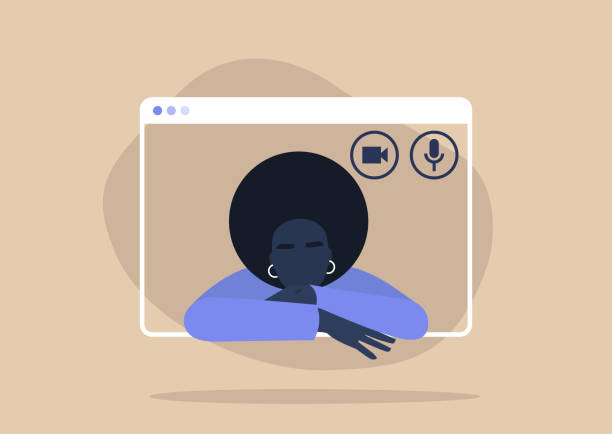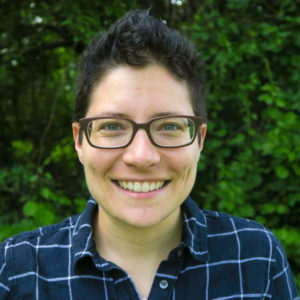
With Quarantine came a bunch of interesting side effects. Everyone, including the people in commercials, is masked up; people are learning to bake bread or to surf, or bake more bread. But give “shitshow” a look on the uber-reliable Urban Dictionary, and that would define the state of collective mental health in the COVID era.
Triggering is the least of it. Maybe you internally went off the deep end right at the start just over a year ago, or the long game feels like it slowly eroded your neural programming. Either way, psychotherapist Dr. Allie Kauffmann, Associate Marriage and Family Therapist affirms it’s not just in your head. She says we are vulnerable to “zoom dysmorphia” (regular body distortion a la Zoom) in our constant state of digital engagement, as well as the good old “comparison game” that comes with upped hours of social media.
One of the biggest energy shifts was the pause on life itself. With most offices shutting down and people having to live their lives from within the bubble of their office space, a lot of us felt a heavy sense of isolation. “Quarantine has put a halt on a lot of people’s careers or hobbies,” Dr. Kauffmann said. “Either their career looks really different than it did in person, or they have had to stop doing community hobbies…This kind of creates a loss of community which can increase depression or a loss of identity. A lot of people have some ties to their career as being …a really important part of how they see themselves….”
It is that much easier for those who do not know what mental illnesses or eating disorders look like to fall victim to their spells. The Renfrew Center treats mental illnesses and specifically eating disorders, at their facilities across the U.S. Their LA location is where Dr. Kauffmann works her magic as Primary Therapist.

She has seen some patterns treating patients during the pandemic. “If life has slowed down a lot due to the pandemic, and [people are] used to rushing around and not having to think about some of these harder identity questions, then in the slow pace of the pandemic, the stuff that they have been able to push aside or not look at comes kind of bubbling up to the surface,” Dr. Kauffmann said. “’Who am I when I’m not doing this thing?‘” While the pre-pandemic pace allowed for more fun and less self-reflection, unfortunately, according to Dr. Kauffmann, life’s ignored problems don’t just go away. Bummer!
“What we see a lot with eating disorders is that clients are controlling their food, or are really rigid in terms of scheduling or the kind of places they’ll go, foods they’ll eat, clothes they’ll wear,” Dr. Kauffmann said. “I think a red flag is are you trying to control your external environment to try to control your internal environment.”
Another common tactic to gain control of the blues is not allowing yourself to feel anything at all. “I tell my clients depression isn’t really an emotion, it’s more of a state of being after you’ve pushed down or not looked at your emotions for a long time,” Dr. Kauffmann said. “Oftentimes when life is really hard, we push away thoughts that are uncomfortable, we push away uncomfortable emotions, and then that actually creates or strengthens feelings of depression.” These patterns are probably more common than a lot of us would care to admit.I’d like to meet who among us hasn’t looked in the mirror at least once and thought, “who is that?”
For OJ Bushell, writer and queer non-binary individual, a lot has been piled onto their mental health plate. “As I’m working towards understanding my gender identity, I’m dealing with the effects of experiencing both body dysmorphia and gender dysphoria simultaneously,” they wrote.

In the Huffington Post, Medium, and more, OJ writes about their journey from painfully conforming to traditional feminine beauty standards before discovering their gender identity and sexuality. As a double-whammy, disordered eating thoughts manifested in OJ as young as 9 years old, but it would be much longer before the symptoms got so pronounced that OJ could not shut them out.
“I had been white knuckling my way through, and once I made it through [grad school], my depression and eating disorder became activated together, and it was the first time I was hospitalized. I think I realized I needed outside help when my ability to function became so compromised and my physical health was in jeopardy” they write. It was then that OJ sought out the Renfrew Center.
This can be a very hard step for people to take for themselves. Depending on a person’s identity, their experience with even the most advanced professional mental health environments can vary. “Residential treatment, while helpful in…ways, has also been challenging as a queer person,” OJ said. “Even programs that say they are gender-inclusive are not often affirming of nonbinary, trans identities and the programming is not usually created with us in mind. I often have felt excluded from the treatment I’m a part of.”
OJ’s experiences give a voice to those who are queer and non-binary and seeking mental health care; even those blessed enough to be in a position to seek professional help when they need may well run into the fact that the psych world is scratching the surface on the mental workings of the marginalized.
From its inception, the bible of psychology, the DSM (Diagnostic and Statistical Manual of Mental Disorders), was made by straight white people for straight white people. For example, right now the DSM 5 is current, while the DSM 3 had to remove homosexuality as a pathology and put out a second edition, doing this as recent as the 70s. That’s right, the disco era officially declared gayness NOT an illness.
Nor is it the cause of one! “I wish people understood that people who are queer do not have mental illnesses because they are queer, OJ said. “There tends to be an increased risk…of eating disorders and mental illnesses in queer communities because of the systemic oppression we face…discrimination, bullying, micro-aggressions, etc. But my gender and sexuality are not the cause of my mental illnesses.”
Dr. Kauffmann also notes the hurdles that the marginalized face historically and currently when seeking out professional help for mental health. “Unfortunately, I think many medical professionals buy into the stigma in our culture that eating disorders are disorders only white, thin, cisgender women experience…Also, I think for many communities of color, there is a stigma around mental health services because there is a history of racism and oppression in the field of psychology that has created fear and shame around POC reaching out for help.”
Curated mental health treatment for all, including POC, queer, trans, non-binary, and other folx may be a thing of the future, but we’re getting there (and to Mars, apparently!) one day at a time. Dr. Allie and the rest of the Renfrew Centers are just one mental health collective of many doing the daily work “to hold and name the histories of oppression in the field of therapy, while actively trying to change this perception and create a healing experience when it comes to the therapeutic relationship” she said.
Help really does belong to whoever wants it, as long as a person is willing to show up for themselves(even digitally!), the inner work can always be done.
*First names only used to protect anonymity
story / Tatiana Louder
graphic / Nadia Bormotova
editor / Sam Berlin
